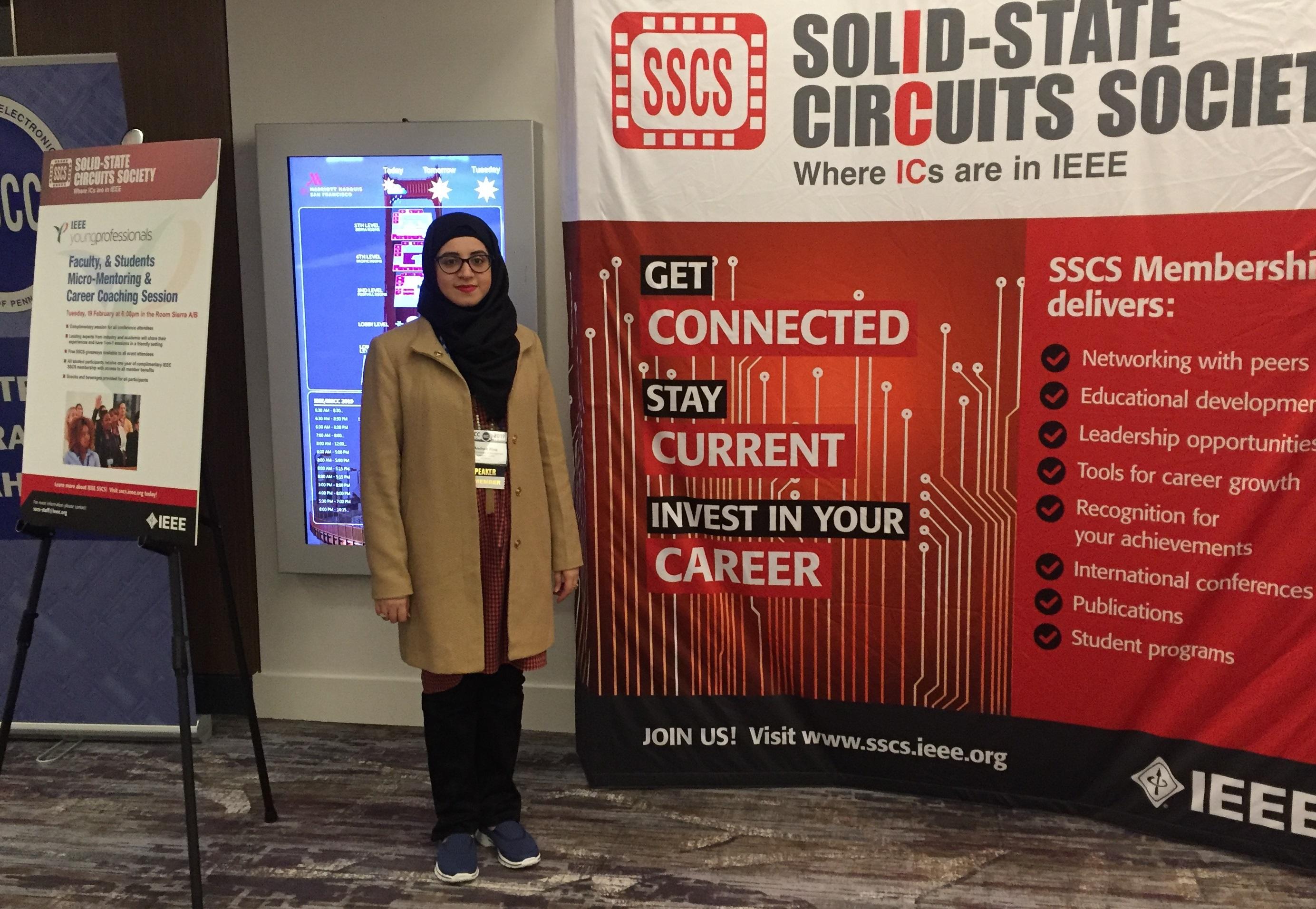
A Noninvasive Glucose Monitoring System Using a Single-Wavelength LED
Abstract:
This PhD thesis has aimed to develop a cost-effective, pain-free, and easy-to-use noninvasive glucose monitoring SoC, that can frequently measure blood glucose levels. The proposed system SoC has three main modules. The LED driver, PPG readout circuit and glucose prediction processor. The glucose prediction processor eliminates noise and baseline drifts from recorded PPG signals and extracts fourteen distinct features. These features are utilized in training models using Support Vector Regression (SVR). The trained models are then used to predict blood glucose levels. The best-performing training model has been selected for hardware implementation. The designed SoC is then verified on 200 subjects.
The dataset has been collected in two phases. For the dataset collected in the first phase of the research work, the SoC is designed using Fine Gaussian Support Vector Regression (FGSVR) as a trained model. Six distinct features extracted from the PPG signals are utilized for glucose estimation. The obtained mARD (mean absolute relative difference) for the test data is 7.62% with an RMSE (root mean square error) of 11.20. The system consumes a total power of 1.62 mW.
For the dataset collected in the second phase of research, the number of subjects has increased with more diabetic patients. An improved SoC is successfully realized. It consumes less power, which is 186 μW for the overall system. Non-medium Gaussian Support Vector Regression (NMGSVR) trained model using ten distinct features from PPG signal are utilized for glucose estimation. The obtained mARD (mean absolute relative difference) for the test data is 6.9% with an RMSE (root mean square error) of 10.20.
Final Thesis Defense Committee:
Dr. Hammad Mehmood Cheema (External Examiner), Principal & Dean,
Dr. Safee Ullah Chaudhary (Internal Examiner), Department Chair, Department of Life Sciences, Syed Babar Ali School of Science and Engineering, Lahore University of Management Sciences (LUMS), Pakistan.
Dr. Momin Uppal (Thesis Committee Member), Syed Babar Ali School of Science and Engineering, Department of Electrical Engineering, Lahore University of Management Sciences (LUMS), Pakistan.
Dr. Muhammad Tahir (Thesis Committee Member),
Dr. Wala Saadeh (PhD Supervisor), Syed Babar Ali School of Science and Engineering, Department of Electrical Engineering, Lahore University of Management Sciences (LUMS), Pakistan.
List of Publications:
Journals:
Aminah Hina and Wala Saadeh, “A Noninvasive Glucose Monitoring SoC Based on Single Wavelength Photoplethysmography,” IEEE Transactions on Biomedical Circuits and Systems (TBioCAS), vol 14, no. 3, pp 504-515, July 2020.
Aminah Hina and Wala Saadeh, “Noninvasive Blood Glucose Monitoring Systems Using Near-Infrared Technology—A Review,” Sensors, vol 22, no. 13, 4855, June 2022.
Aminah Hina and Wala Saadeh, "A 186μW Photoplethysmography-Based Noninvasive Glucose Sensing SoC," in IEEE Sensors Journal, vol. 22, no. 14, pp. 14185-14195, July 2022.
Conferences:
Aminah Hina, Hamza Nadeem, and Wala Saadeh, “A Single LED Photoplethysmography-Based Noninvasive Glucose Monitoring Prototype Sys,” in Proc. IEEE Int. Syme. Circuits Syst. (ISCAS), May. 2019, pp. 1-5.
Aminah Hina and Wala Saadeh, “A 186uW Glucose Monitoring SoC using Near-infrared Photoplethysmography,” IEEE Asian Solid-State Circuits Conference (ASSCC), Nov. 2020, pp. 1-4.
Aminah Hina, Sameen Minto and Wala Saadeh, “A 208μW PPG-Based Glucose Monitoring SoC Using Ensembled Boosted Trees,” IEEE 20th IEEE Interregional NEWCAS Conference, June 2022, pp 241-245.
Aminah Hina and Wala Saadeh, “A 1mW Time Constant Based Impedance Spectroscopy for Non-Invasive Blood Glucose Monitoring," 2021 1st International Conference on Microwave, Antennas & Circuits (ICMAC), December 2021, pp. 1-4.
International Presentation and Demonstrations:
Poster Presentation with Demonstration in Student Research Preview (SPR), International Solid-State Circuit Conference (ISSC) 2019.
Aminah Hina, Hamza Nadeem, and Wala Saadeh; “Live Demonstration: A Single LED Photoplethysmography-Based Noninvasive Glucose Monitoring Prototype System,” in Proc. IEEE Int. Syme. Circuits Syst. (ISCAS), May. 2019, pp. 1-1.
Awards:
Best Poster Award in Student Research Preview (SPR), International Solid-State Circuit Conference (ISSC) 2019.
Student Adviser for Student Research Preview (SPR), ISSC 2020.
International Solid-State Circuit Conference (ISSC) Student Travel Grant, 2019
Syed Babar Ali Research Fellowship Award, Lahore University of Management and Sciences Lahore, 2021-2022.
Best Paper Award (Integrated Circuit Track) 1st International Conference on Microwave, Antennas & Circuits (ICMAC) 2021, Islamabad.

